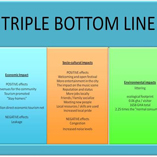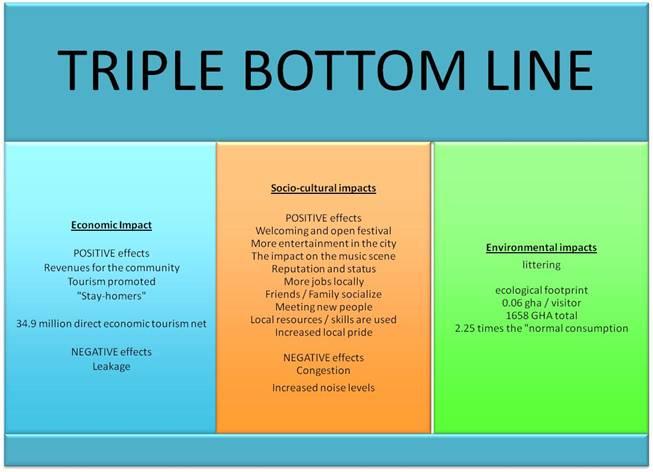Evaluation of sustainability of events – a case study of ‘Way Out West’

\n
This project on event sustainability aims to develop and test methods for evaluating events from a wider perspective than just the economic. The project was inspired by research on sustainability and the concept of the Triple Bottom Line which highlights economic, environmental and socio-cultural impacts of activities. Through a careful review of previous research (in order to use the experience gained) and a partnership with West Sweden Tourist Board, Göteborg & Co and event organisers Luger, the project aims to give both academic and practical results using new methods of evaluating events. The methods were piloted on the event Way Out West, which is an annual music event in Gothenburg with a clear environmental awareness.
\n
Developing the model used in previous studies, the aim is to test methods related to environmental economics (so-called Contingent Valuation methods) to estimate the value of intangible social and cultural effects in monetary units, ie. to put in dollars and cents the value of the event’s impact on the image of the town, on local pride and quality of life, cultural norms, etc. This makes it possible to compare these values to the economic impact of the event. The research and work was carried out by PhD student Erik Lundberg and Professor Tommy D. Andersson at Gothenburg University.
\n
\n
